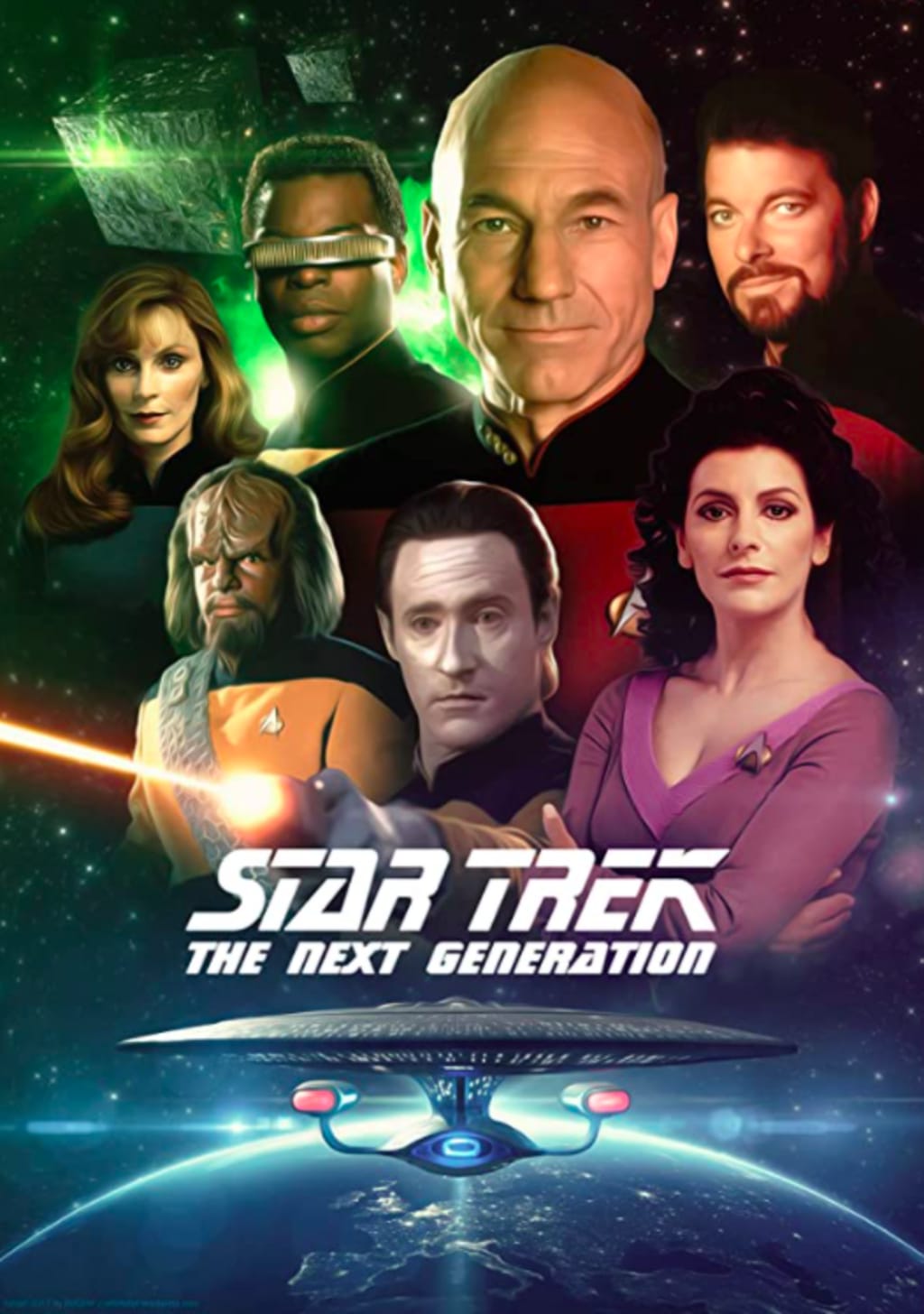Part I: Best Second Tier Episodes of 'Star Trek: The Next Generation'
The Next Generation's Next Level of Greatness

As in the original series, The Next Generation has a tier below "Tapestry," "All Good Things," "Yesterday’s Enterprise," and "The Inner Light." Here are my first two installments.
The Outcast
Star Trek has obviously been ahead of the curve in terms of envisioning a more progressive society. But in terms of LGBTQ issues, Star Trek hasn’t exactly stayed above the arc. On the other hand, The Next Generation did meet its usual standards in "The Outcast."
The J'naii are a race of beings in which evolution has made gender moot. We learn that after a long, pleasurable mating period that parents inseminate a husk. But the seeds of their intolerance is reflected in an attitude that deems gender based beings as “primitive,” according to Soren.
Not to worry, Riker is not offended by his quest and is quick to make his case. “There's a lot to be said for an experience that's primitive,” he deadpans.
Soren sees past the bravado nonetheless and confides the dark underbelly of her world. “Occasionally, among my people, there are a few who are born different, who are throwbacks from the era when we all had gender. Some have strong inclinations to maleness, and some have urges to be female. I am one of the latter.”
These outcasts are attracted to the “opposite sex” and are driven into a life of secrecy and fear. The juxtaposition is clear. The gay people are normal, and the heterosexuals are queer.
The queers also face the possibility of a psychotectic therapy that “fixes them,” and probably would have had Mike Pence mouthing the rationalization of the J’naii official's agenda. “On this world, everyone wants to be normal," it justifies the cure.
Our Vice President would do better considering Soren’s impassioned logic. “All of the loving things that you do with each other, that is what we do. And for that we are called misfits and deviants and criminals. What right do you have to punish us? What right do you have to change us? What makes you think you can dictate how people love each other?”
They just do and demonstrates that the Prime Directive doesn’t cover everything. Either way, Star Trek needs more of this so normal never gets defined—especially by idiots.
Half a Life
If we resolve nothing in this episode, Trekkies learn definitely that Lwaxana Troi is a serious woman, and the issue at hand hits her (and us) exactly where we live. How does society deal with the descent of life as it slowly degrades to diminished capacity and finally death.
The conundrum unfolds so profoundly in "Half a Life" because her unyielding passion and carefree nature serves as backdrop. We quickly get the reminder when Timicin arrives aboard the Enterprise to save his home planet from a dying sun. “I’m Daughter of The Fifth House, Holder of the Sacred Chalice of Rixx, Heir of the Holy Rings of Betazed, and what are you doing for dinner,” Laxana does not hold back.
She doesn’t let the dire planetary situation get in her way either. “Now, now, now, you boys have been shut up in here for hours. Now, if you don't eat something, you're going to get sick, and who's that going to help?”
All of us enamored, the real immediacy is revealed. “You see, Lwaxana, I'm on my way home now to die,” Timicin laments.
Sixty has been the age set to let everyone off the hook, and the good doctor has the logical talking points down. “As people aged, their health failed, they became invalids. Those whose families could no longer care for them were put away in deathwatch facilities, where they waited in loneliness for the end to come, sometimes for years. They had meant something, and they were forced to live beyond that, into a time of meaning nothing, of knowing they could now only be the beneficiaries of younger people's patience.
Of course, Lwaxana has her own version of logic. “Well, why the hell not?” she lets loose.
Even so, the Betazed can acknowledge the reasoning, and Deanna is there to comfort the fear that Timicin is right. “I know you, Mother, and believe me, you will never be one of those who dies before they die.”
Lwaxana knows were she stands, though, and Timicin and his world are forced to listen. “I don't know why anyone's bothering to try to save your world at all. If its time has come, let it die. Where's the difference, Timicin? Where?”
But Star Trek has taught us not to judge, and that no one has the right answers. Laxawana acquiescence brings home the message. “Captain. I promise I won't cause any problems down there.”
Ultimately, her cultural sensitivity enables us to ponder the pain and proceed in accordance with our own values.
Please Like my entertainment page on Facebook
Author can be reached at [email protected]
About the Creator
Rich Monetti
I am, I write.






Comments
There are no comments for this story
Be the first to respond and start the conversation.